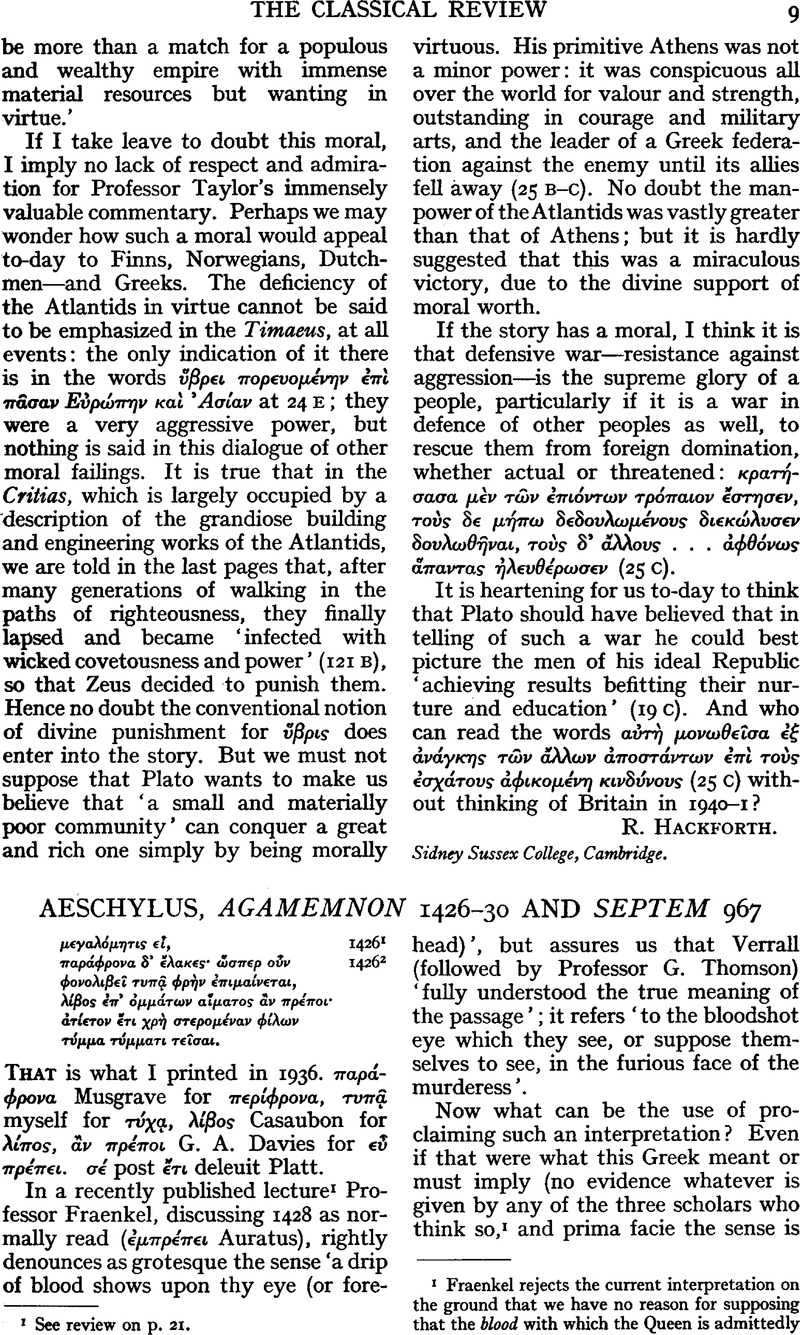No CrossRef data available.
Article contents
Aeschylus, Agamemnon 1426–30 and Septem 967
Published online by Cambridge University Press: 27 October 2009
Abstract

- Type
- Review Article
- Information
- Copyright
- Copyright © The Classical Association 1944
References
page 9 note 1 See review on p. 21.
page 9 note 1 Fraenkel rejects the current interpretation on the ground that we have no reason for supposing that the blood with which the Queen is admittedly (1389–92) bespattered is on her brow at all. True; but why then substitute a suggestion for which there is even less evidence? In these matters one must at least play fair.
page 10 note 1 Since 1426 does not even make sense in itself, the dodge is to keep δ' but translate τ' see e.g. Verrall, Weir Smyth, G. Thomson. Further, ‘λακεîν is an invidious word’, Headlam, p. 210; true; how then can Πείρφρονα be thus used with it?
page 10 note 1 Compare review, p. 21, final paragraph, on the new fragments.
page 10 note 1 Platt, , J. Phil. xxxv. 92Google Scholar, gave the two sound reasons why we should read ἀτίετον rather than ἄντιτον. That ‘σὲ is unnecessary’ (with the feminine participle) is also true; yet its omission was in the circumstances somewhat inelegant. This objection now disappears.
page 11 note 1 Assuming that the construction is as analysed in L.S.J. s.v. Πίνω I. 4.
page 11 note 2 I feel bound to add that in this respect there is also a perfect correspondence between this text of 1426–30 and my own (but no one else's) of 1434. It is also worth observing that ὣσπερ οὖν appears in Aeschylus only thrice, and that our example now corresponds closely with Cho. 96 and still more closely with Cho. 888; on Fraenkel's view it is far otherwise, and indeed one may question whether his οὖν has force at all, since his 1427 refers to nothing manifest or axiomatic.


